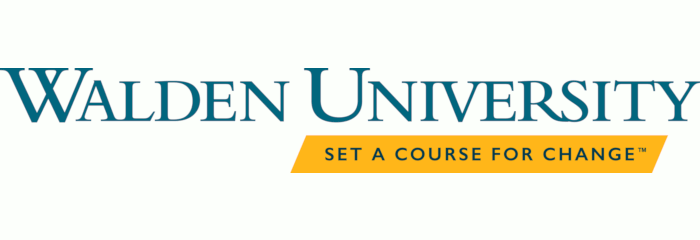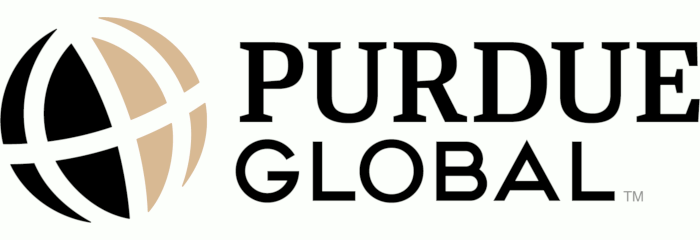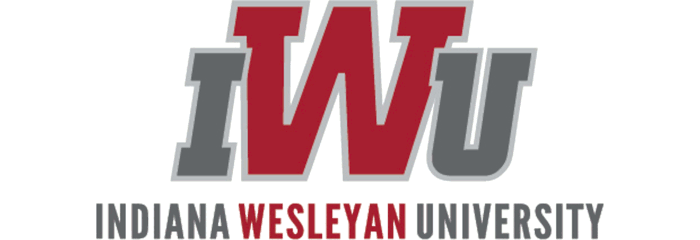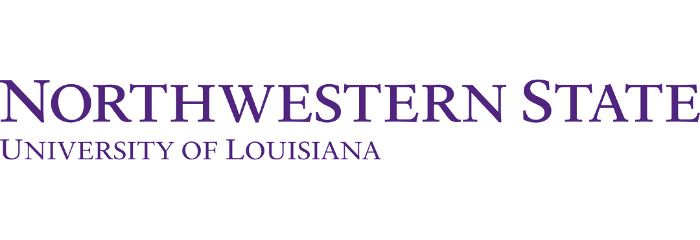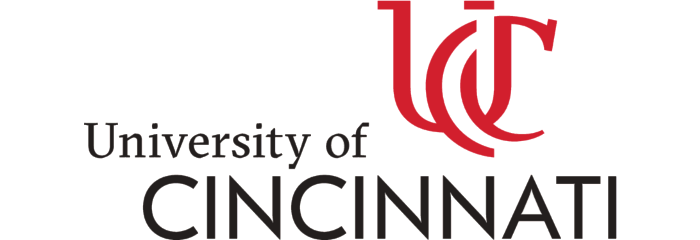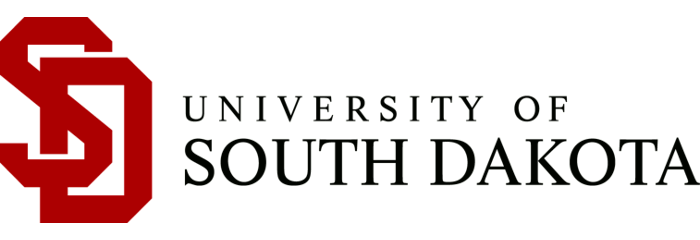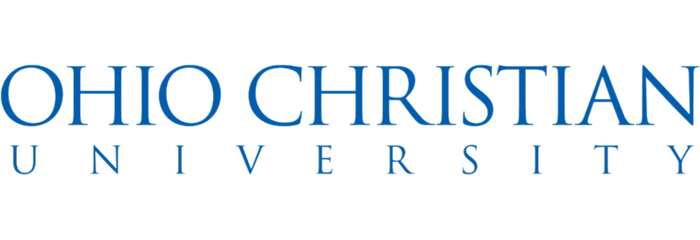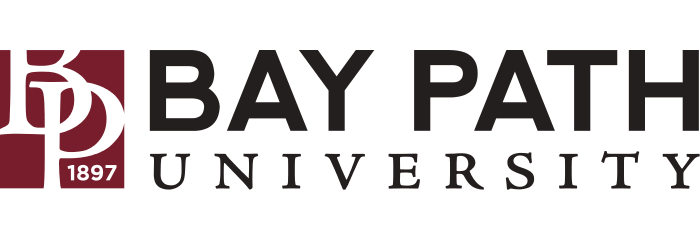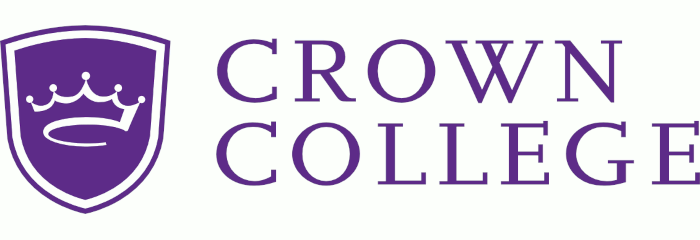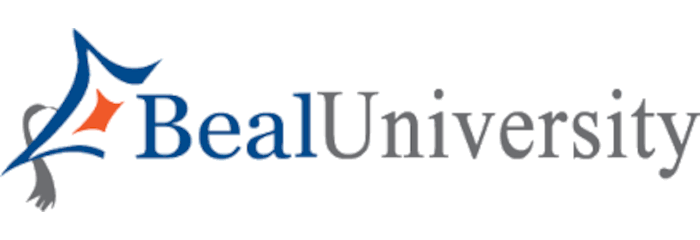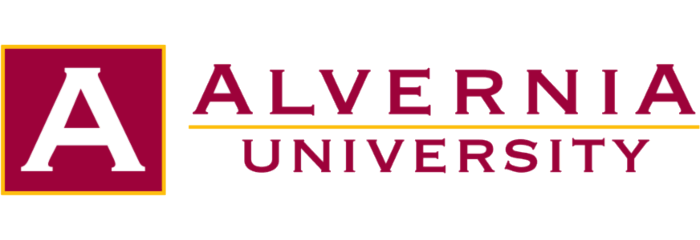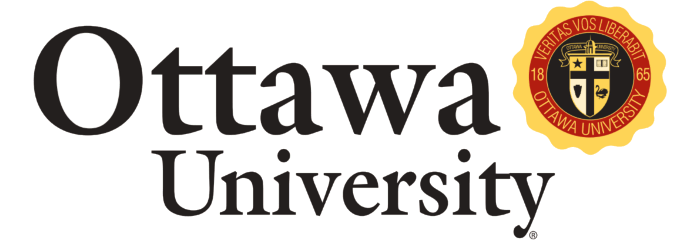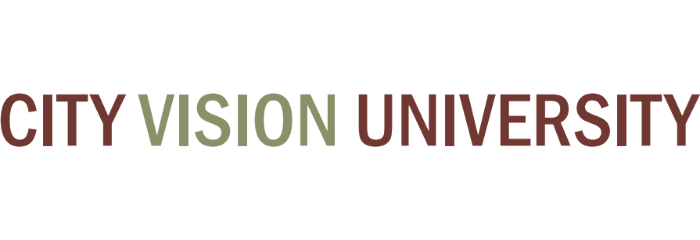An online substance abuse counseling degree provides a pathway for those wanting to support individuals with addiction. The program combines addiction theories, counseling techniques, and practical experience, offering a flexible format for adult learners. Graduates are equipped for roles in rehabilitation center's and community organizations.
Key Takeaways
- Southern New Hampshire University Online, which hosts an online substance abuse counseling degree, boasts a massive online enrollment of 135,584 undergraduates.
- Eastern Washington University excels with its addiction studies bachelor's that achieves a median graduate earnings of $46,108.
At OnlineU, we prioritize accredited online schools based on the online enrollment at the undergraduate level. We utilize data from the Integrated Postsecondary Education Data System (IPEDS) and verify degree offerings for accuracy. For more details, please visit our comprehensive methodology page.
List Of Accredited Online Substance Abuse Counseling Schools
| School | Online Enrollment | Annual Tuition |
|---|---|---|
| Southern New Hampshire University Online | $9,900 | |
| Arizona State University, Online | 50,637 | $24,780 |
| Liberty University | 35,243 | $11,700 |
| Purdue Global | 33,392 | $11,130 |
| Indiana Wesleyan University Online | 5,504 | $20,092 |
| Northwestern State University of Louisiana | 4,490 | $11,250 |
| University of Cincinnati | 4,102 | $13,172 |
| University of South Dakota | 2,152 | $10,642 |
| Ohio Christian University | 1,126 | $13,500 |
| Eastern Washington University | 869 | $25,892 |
| Bay Path University | 867 | $12,300 |
| Crown College | 668 | $15,900 |
| Beal University | 221 | N/A |
| Alvernia University | 214 | $19,500 |
| University of Holy Cross | 207 | $18,000 |
| Ottawa University Online | 172 | $14,970 |
| City Vision University | 132 | $8,000 |
2025 Best Online Substance Abuse Counseling Degrees
- Online Enrollment: 135,584 enrolled
- Annual Tuition: $9,900
- Location: Manchester (NH)
Online degree:
Why we like them: SNHU UUֱ�� excels in online education with over 135,584 students, reflecting its strong infrastructure for diverse learners. The Bachelor of Arts in Psychology with a concentration in Addiction Studies explores addictive behavior's through courses like Contemporary Issues in Addictions and Perspectives of Addiction. This program requires 120 credits and features a 12-credit embedded Data Literacy in Psychology certificate. Accredited by the New England Commission of Higher Education, it prepares students for various roles in counselling and psychology, though it does not lead to direct licensure.
- Online Enrollment: 50,637 enrolled
- Annual Tuition: $24,780
- Locations: Tempe (AZ) (and 4 others)
Online degree:
Why we like them: ASU ranks second for the popularity of its online programs, boasting over 50,000 students. Plus, it has a 90% recommendation rate. The Bachelor of Science in Counseling and Applied Psychological Sciences - Substance Abuse and Addictions combines psychological theory with practical skills, requiring 120 credit hours over 40 classes. Key components include diagnosing substance use disorders and a 135-hour internship under licensed supervision. This program aligns with Arizona's Licensed Substance Abuse Technician credential criteria, preparing graduates for further studies and licensure in the field.
- Online Enrollment: 35,243 enrolled
- Annual Tuition: $11,700
- Location: Lynchburg (VA)
Online degree:
Why we like them: LU ranks third, driven by its exceptional online enrollment of over 35,000 learners at the undergraduate level alone. It offers a Bachelor of Science in Psychology - Addictions and Recovery, requiring 120 credit hours with the flexibility to transfer up to 75%. Courses are structured in 8-week terms, making balancing studies with other responsibilities easier. The curriculum integrates scientific knowledge with faith-based principles, preparing graduates to assess, diagnose, and develop treatment plans for addiction recovery.
- Online Enrollment: 33,392 enrolled
- Annual Tuition: $11,130
- Location: Indianapolis (IN)
Online degree:
Why we like them: PG ranks 4th for online enrollment, with 33,392 students benefiting from its flexible programs at the undergraduate level. The fully online Bachelor of Science in Psychology in Addictions requires 180 quarter credits, covering courses in Addiction Science, Intervention and Prevention, and Case Management. Students can personalize their education with concentrations in Business Foundations or a Practicum Track, plus a three-week trial period to explore the program at no cost.
- Online Enrollment: 5,504 enrolled
- Annual Tuition: $20,092
- Location: Marion (IN)
Online degree:
Why we like them: IWU Online is recognized for its substantial online enrollment of 5,504, placing it in the top 7% among peer institutions. The Bachelor of Science in Addictions Counseling offers a faith-integrated, 100% online program that can be completed in as little as 22 months across 16 courses. The curriculum covers evidence-based counselling, Group Therapy, and Abnormal Psychology, ensuring a comprehensive education with a Christian worldview. With a locked tuition rate and extensive financial aid, IWU prioritizes student satisfaction and support throughout your academic journey.
- Online Enrollment: 4,490 enrolled
- Annual Tuition: $11,250
- Location: Natchitoches (LA)
Online degree:
Why we like them: NSU ranks in the top 8% for online enrollment with 4,490 students, showcasing its commitment to accessible education. The Bachelor of Science in Addiction Studies offers a comprehensive understanding of human behavior and addictive processes. This program prepares students for growing human resources and communication job markets, emphasizing data analysis and behavior interpretation skills. NSU delivers quality online programs with an 83% recommendation rate and a 3.87 out of 5 overall review rating.
- Online Enrollment: 4,102 enrolled
- Annual Tuition: $13,172
- Locations: Cincinnati (OH) (and 1 other)
Online degree:
Why we like them: UC ranks 7th nationally for online enrollment, placing it in the top 10% of schools for online students. With an impressive retention rate in the top 13% and an 86% recommendation rate, UC emphasizes student satisfaction. The Bachelor of Science in Substance Abuse Counseling is a flexible online program for full- and part-time students, requiring 60-120 credits and offering multiple start dates. The curriculum includes essential topics like Pharmacology and Cultural Competencies. UC boasts a 100% pass rate on the Addiction Counseling Exam, reflecting its high academic standards.
- Online Enrollment: 2,152 enrolled
- Annual Tuition: $10,642
- Location: Vermillion (SD)
Online degree:
Why we like them: USD is noted for its substantial online enrollment, featuring over 2,000 remote learners. It also has an impressive retention rate of 82%, reflecting strong support and engaging curricula. The online addiction counseling degree, which the National Addiction Studies Accreditation Commission accredits, requires 120 credit hours and 45 major courses. Students can specialize in Treatment or Prevention, focusing on areas like the Psychopharmacology of Addiction and Community Prevention Strategies while completing an internship for real-world experience.
- Online Enrollment: 1,126 enrolled
- Annual Tuition: $13,500
- Location: Circleville (OH)
Online degree:
Why we like them: OCU has over 1,000 online undergraduates enrolled currently. The online substance abuse counseling degree is designed for working professionals, featuring a flexible 5-week format. With courses like Abnormal Psychology, Methods of Counseling, and Psychopharmacology, the program integrates Christian ethical principles with core counselling practices. Graduates are prepared for Certified Chemical Dependency Assistant status and equipped for the state licensure exam, ensuring thorough preparation for a successful career in substance abuse counselling.
- Online Enrollment: 869 enrolled
- Annual Tuition: $25,892
- Location: Cheney (WA)
Online degree:
Why we like them: EWU has earned an 89% recommendation rate from satisfied students. Graduates of the addiction studies degree online boast median earnings of $46,108, highlighting the program's value. The Bachelor of Arts in Addiction Studies equips students for careers in addiction treatment, meeting Washington State's educational requirements for SUDP certification. The curriculum includes Counseling Theories for Addiction and Community Prevention Methods courses, as well as a human or lifespan development course. Optional practicum placements also provide real-world experience in state-approved agencies.
- Online Enrollment: 867 enrolled
- Annual Tuition: $12,300
- Locations: Longmeadow (MA) (and 1 other)
Online degree:
Why we like them: BPU has an online Bachelor of Arts in Psychology - Foundations of Alcohol and Drug Abuse Counseling that offers a flexible asynchronous learning format designed to accommodate your schedule and learning style. Through 120 credit hours, students study core areas like counseling ethics, psychopathology, and substance abuse intervention. The program emphasizes practical skills in interviewing, counseling, and intervention within a supervised clinical setting. Students have the option to earn graduate credits toward an MS in Clinical Mental Health Counseling.
- Online Enrollment: 668 enrolled
- Annual Tuition: $15,900
- Location: Saint Bonifacius (MN)
Online degree:
Why we like them: Crown's alcohol and drug counseling degree is devised for those eager to aid individuals struggling with addiction, offering a unique integration of faith-based education. This primarily online program is executed in eight-week course cycles, allowing flexibility for working adults. With an emphasis on Biblical principles, students engage in an academic journey supported by experienced faculty. Key features include a mandatory onsite internship during the final two semesters, where you can apply counseling skills in real-world settings under supervision.
- Online Enrollment: 221 enrolled
- Annual Tuition: N/A
- Locations: Bangor (ME) (and 1 other)
Online degree:
Why we like them: At Beal, students can pursue a Bachelor of Science in Addiction Counseling entirely online. The 42-month Bachelor's program covers essential areas through courses like Assessment, Treatment Planning, and Multicultural Counseling. With classes starting every 8 weeks and 90% of students receiving financial aid, Beal supports your journey in addiction counselling while allowing you to balance your professional commitments.
- Online Enrollment: 214 enrolled
- Annual Tuition: $19,500
- Location: Reading (PA)
Online degree:
Why we like them: Alvernia’s Bachelor of Arts in Addictions and Mental Health Treatment online program involves the completion of 123 credit hours, which you can achieve within two to four years, with courses spanning seven weeks each. It covers a liberal arts curriculum alongside a major in Addictions and Mental Health, requiring majors to take 54 credits within the field, and includes hands-on practicum field experiences, totaling 400 hours across four courses. This program is approved by the Pennsylvania Certification Board, ensuring you fulfill certification requirements if needed. This degree equips you to become a certified alcohol and drug counselor.
- Online Enrollment: 207 enrolled
- Annual Tuition: $18,000
- Location: New Orleans (LA)
Online degree:
Why we like them: UHC has a low student-faculty ratio 10:1, offering personalized attention that enhances the learning experience. The Bachelor of Science in Addictions Counseling is a 120-credit program that builds skills for effective addiction intervention. The curriculum covers foundational counseling skills alongside psychological theories, preparing students to identify and support individuals with addiction challenges. Through courses in interviewing, research, and counseling strategies, graduates gain a solid grounding in human behavior across the lifespan.
- Online Enrollment: 172 enrolled
- Annual Tuition: $14,970
- Location: Ottawa (KS)
Online degree:
Why we like them: OU features an online Bachelor of Science in Addiction Counseling. This accelerated program covers essential topics such as substance use disorders, harm reduction, and treatment planning while integrating research and counselling theories. Key courses include Introduction to Substance Abuse Disorders and Group Counseling in Addiction. The Practicum/Internship I and II offer 150 hours of supervised clinical work, ensuring valuable hands-on experience. OU’s program is accredited by the Higher Learning Commission, preparing you for successful careers in diverse counselling settings.
- Online Enrollment: 132 enrolled
- Annual Tuition: $8,000
- Location: Kansas City (MO)
Online degree:
Why we like them: CVU offers an affordable and accessible online Christian Bachelor’s degree in Addiction Counseling, accredited by the Distance Education Accrediting Commission. The program, comprising 120 credits and typically completed in four years, is delivered online through eight-week courses. You can transfer up to 75% of your credits from prior education. Online courses include Ethics, Addiction Counseling Assessment, Treatment Planning, and specialized Clinical Counseling and Christian Recovery Ministry concentrations, ensuring you’re well-prepared for certification exams and professional roles.
Overview of Online Substance Use Counseling
A bachelor's in substance use counseling may help students develop an understanding of chemical dependency and empathy for people in treatment for substance use disorder. Faculty typically lead undergraduates through lessons on the neurochemistry of substance use, counseling theories and techniques, and professional ethics. Most of these degrees aim to prepare graduates for substance abuse counseling careers, but the knowledge and skills that professors teach can also prove useful in other fields. Some programs culminate in a clinical experience or practicum.
Changing the Language of Addiction
The way that we talk about mental health is changing.
Throughout this article about online substance use counseling degrees and careers, we've included insights from two experts: Dr. Wendy St. Pierre, assistant professor of Mental Health and Human Services at the University of Maine at Augusta, and Jay Shifman, a mental health and addiction speaker, coach, and advocate.
According to both Shifman and Dr. St. Pierre, industry professionals are gradually phasing out emotionally loaded phrases associated with addiction in favor of more empathetic and compassionate language. The most notable case is the shift away from "substance abuse" toward "substance use." This trend follows the lead of the fifth edition of the Diagnostic and Statistical Manual of Mental Disorders, which into a single condition: substance use disorder.
The evolving terminology for addiction is part of a more general attempt to reduce stigma around substance use disorder. just as much as people viewing it from outside and can cause them to avoid treatment for fear of being judged or treated contemptuously.
On this page, we use the phrase "substance use" when referring to the specific mental health disorder. However, many academic programs and Bureau of Labor Statistics (BLS) pages still use the older terminology, so we reflect this wording when referencing their material.
What Is a Bachelor's in Substance Use Counseling Degree?
A bachelor's degree in substance use counseling is a major step toward becoming a substance use counselor. Program faculty seek to train compassionate, empathetic professionals who can help clients understand and combat their addictions.
Specifically, students learn about the symptoms and causes of chemical dependency through courses in psychology, counseling theory, professional ethics, and pharmacology. The curriculum also includes a practicum element in which students provide counseling services under supervision in a mental health facility, hospital, or rehabilitation clinic.
As with other types of mental health counseling, demand is spiking for substance use counseling degrees.
If cost is your primary concern when looking for a degree, explore the most affordable online bachelor's in substance use counseling or the most affordable online master's degrees in substance use counseling.
State-Specific Resources and FAQs
Want to learn more about substance abuse counseling in your region? We've gathered important data and information in all 50 states.
- Alabama
- Arizona
- Arkansas
- California
- Colorado
- Connecticut
- Delaware
- Florida
- Idaho
- Illinois
- Iowa
- Kentucky
- Louisiana
- Maine
- Maryland
- Massachusetts
- Michigan
- Minnesota
- Mississippi
- Missouri
- Nevada
- New Jersey
- New York
- North Carolina
- Ohio
- Oklahoma
- Pennsylvania
- Texas
- Utah
- Virginia
- Washington
- West Virginia
- Wisconsin
What Will You Learn in a Bachelor's in Substance Use Counseling Program?
Faculty typically design bachelor's degrees in this major to teach general psychology, pharmacology, behavior modification techniques, counseling methods, and ethical issues. Bachelor's students also take general education courses on top of classes in their major.
Because substance use and drug addiction is itself a specialization within mental health counseling, most substance use counseling programs offer similar core courses without additional concentrations. This is true even though degree names differ slightly — for example, a BS in Addiction Counseling usually features similar coursework to a BS in Substance Abuse Counseling. Additionally, Bachelor of Science and Bachelor of Arts degrees will diverge in the number of math and science classes versus humanities and sociology classes needed to meet general education requirements.
Most substance use counseling programs offer similar core courses without additional concentrations. This is true even though degree names differ slightly.
Common Courses
Most distance learning programs feature asynchronous online courses, which have no live class meetings. But some programs include prescheduled synchronous sessions for group exercises and other activities. In general, online students have 24/7 access to learning materials, including recorded lectures, discussion boards, and assignments.
You may encounter courses that require laboratory experiments. In these cases, your college may ship you a lab kit or ask you to supply any needed equipment.
Below, we've listed a few courses you'll find in a typical online addiction counseling bachelor's degree program:
Assessment and Diagnosis
This class aims to teach one of an addiction counselor's core competencies: the ability to accurately screen and understand patients who present with possible substance use disorders.
Case Management
In this course, professors teach important administrative practices for counselors, including assessment, note-taking, data privacy, and referral procedures.
Psychopharmacology
Addiction counselors need to understand the physiological effects of drugs and alcohol on the body, which is the subject of this class.
Crisis Intervention
This course covers types of patient crises and proven response models for each.
Trauma and Substance Use Disorder
Students analyze the relationship between trauma and addiction, and they learn counseling techniques to help clients work through the past during recovery in this class.
What Can You Do With a Bachelor's Degree in Substance Use Counseling?
Most faculty in this major likely assume that students want to be substance use counselors, so they design the curricula accordingly. However, the knowledge and skills taught in this bachelor's program may also prove useful in other fields.
We've collected a few jobs below that you might qualify for as an addiction counseling program graduate:
Health Education Specialists
teach communities about health and safety practices, such as personal hygiene or proper child car seat installation. They may work for government health agencies, nonprofits, or healthcare facilities. The COVID-19 pandemic has likely accelerated the demand for professionals who can teach communities to practice good health and hygiene.
Medical and Health Services Managers
run healthcare facility operations at hospitals, outpatient clinics, or nursing homes. Although the field is growing rapidly, many of these employers hire applicants with master's degrees in healthcare management. But you may be able to improve your prospects with other employers by taking business administration or management electives during your education program.
Social and Community Service Managers
Nonprofits and government social service agencies need to schedule employees, plan awareness campaigns, and apply for funding from donors. During an interview process, you might choose to emphasize any counseling skills you've developed, such as compassion, communication, or organization and planning.
Substance Use Counselors
career allows counseling students to put everything they've learned into practice by helping clients understand, process, and overcome their addictions. These professionals may find work at mental health clinics, hospitals, health departments, or private practices. Most employers prefer licensed substance use counselors; see the section on licensure requirements below.
What Are the Licensure and Certification Requirements for Substance Use Counselors?
To enter private practice in any U.S. state, you need to earn a master's degree in substance use counseling. You may also need a master's for non-private practice jobs in some states, though this is less common.
There are no nationwide requirements for licensure or certification as a substance use counselor, so you'll need to consult the relevant mental health agency in the state or territory where you want to practice. The Substance Abuse and Mental Health Services Administration established the , which features regional centers where students can check their state’s requirements.
Certification isn't required to practice but does provide an extra credential that counselors can earn to demonstrate their expertise in the field. The grants three progressive levels of certification to licensed substance use counselors based on their education and experience.
- A National Certified Addiction Counselor, Level I must have three years of full-time counseling experience and 270 hours of education and training.
- A National Certified Addiction Counselor, Level II needs a bachelor's degree, three years of counseling experience, and 450 hours of specialized training.
- A Master Addiction Counselor (MAC) requires a master's degree, three years of counseling experience, and 500 hours of specialized training.
The commission also gives specialist credentials for counselors who wish to concentrate in certain substances or populations, such as nicotine dependency or adolescent patients.
What Can You Do With an Addiction Counseling Degree Other Than Substance Use Counseling?
You may be qualified to work in social and community service or healthcare as an educator, health specialist, or administrator. If your goal is to open a private practice, you may choose to gain work experience in one of these adjacent jobs while you pursue the necessary master's degree to set off on your own.
Is a Substance Use Degree Worth It?
A social work degree might be a good fit if you're organized, methodical, and strategically minded. According to employer data collected by Burning Glass Technologies, substance use counselors need these skills when creating treatment plans, documenting patient progress, and managing their caseload. It's a good idea to work on developing these competencies during your studies.
Your long-term career goals should help you decide whether this degree is a good fit. Keep in mind that you'll need a master's degree in substance use counseling to get a license to practice privately, but a bachelor's degree can prepare you for entry-level roles in the field.
Ultimately, the answer to this question differs for every person, so it's important to weigh the possible pros and cons:
-
One potential benefit is that analysts expect this field to grow rapidly in the coming years. The BLS projects an for the broad category of substance use, behavioral disorder, and mental health counselors in the 2022-2032 period. Further, the data analytics company predicts a 20% growth over ten years for substance use counselors in particular. Both numbers are much higher than the 5% average growth for all U.S. jobs combined.
-
On the downside, substance use counselors earn relatively low pay. While employees with bachelor's degrees earned a median annual salary of $46,310 in 2022, a substance abuse, behavioral disorder, and mental health counselor's median annual salary is only slightly higher at $49,710. Burning Glass data reveals one bright spot: Substance use counselors with bachelor's degrees earn almost identical salaries to those with master's degrees, so you may not need to pursue an advanced degree.
Interested in learning about similar degrees? Explore online bachelor's programs in counseling or the best online psychology degrees.
FAQs About Online Substance Use Degrees
Can I Get a Substance Use Counseling Degree Online?
You can attend a fully online substance use counseling degree program. For many programs, the only in-person requirement is a field practicum or internship at a facility in your community. You may also find a college with a hybrid program (a mix of online and on-campus courses).
How Long Does it Take to Get a Bachelor's Degree in Substance Use Counseling?
Most bachelor's degrees in this subject require 120 credit hours, which can take four years to complete with a full-time schedule. Part-time students might take longer, and some online programs feature eight-week courses that allow students to finish quicker by enrolling in more classes each year.
Programs that include an internship usually count this field experience in their credit-hour total. The internship may last one or two semesters. If you plan to go into private practice, you'll also need to complete a master's degree with supervised clinical hours, which can take two to three years.
How Much Do Substance Use Counselors Make?
The BLS calculates a median annual salary of for substance use counselors. According to the same government data, the lowest 10% of earners in this field made less than $34,580, while the top 10% earned more than $82,710. On average, those who work in hospital settings tend to earn more, with an average income of $54,740.
How Do I Get Certified in Substance Use Counseling?
You can apply for a certification through the NCCAP after three years of work experience as a substance use counselor. You must then pass a test and pay a nonrefundable $235 fee to receive your credential.
Two further levels of NCCAP certification require more education and experience.
What Else Should You Consider?
A bachelor's degree can consume a lot of time, money, and effort over several years, so it's best to verify that you have all the facts you need before applying. We've compiled a few questions to ask as you do your research:
What's the accreditation status of this college and this program?
The (NASAC) certifies the quality of bachelor's degree programs in the discipline. by the U.S. Department of Education or Council for Higher Education Accreditation, so it's unlikely that employers will require applicants to be graduates of a NASAC-accredited program. However, NASAC's seal may provide an additional sign that you attended a high-quality program.
Is distance learning right for me?
An online education is ideal for many students because the flexibility and convenience help them balance their responsibilities. But others thrive in the traditional campus classroom. You need to weigh the pros and cons for your circumstances.
Will this program lead to licensure in the state where I want to work?
UUֱ�� education grants the ability to attend your ideal program without needing to uproot your life and move to another part of the country. But colleges are generally only concerned with licensure in their area, so it may be helpful to research differences in licensure requirements between your state and the state where your school is located.
Does the program provide an internship?
, especially when considering bachelor's-level candidates who may not have lengthy resumes. Pre-licensure programs in substance use counseling must include a field placement, so choosing a program that includes a hands-on element is a great way to take advantage of this valuable opportunity.
Is substance use really the type of counseling I want to do?
There are many types of mental health professionals, from bachelor's-qualified therapists to psychiatrists with medical degrees. You might also review other counseling specializations and degrees, such as those below.
- Child and Adolescent Counseling
- Clinical Mental Health Counseling
- Marriage and Family Counseling Degrees
- Rehabilitation Counseling Degrees
- School Counseling Degrees
Student Reviews of Online Substance Abuse Counseling Programs
First, this is a personal take on MY time not a generalized statement. 1. Super easy to apply and after only four days I was enrolled. 2. In the 2 years I have been attending I’ve held a perfect 4.0 because it’s incredibly easy to follow the class rubric. 3. This university inducted me into the National Society for leadership & success, my previous university said I was never going to make it in the real world, jokes on them. 4. Only one hiccup and quickly taken care of and fixed, 10/10. Advisors... Read More
Review Date: 12/10/2023
Would Recommend: Yes
Helpful for Career: No
It’s okay—my experience with the school hasn’t been perfect. There are definitely things that could’ve been better, but I’m learning, adjusting, and pushing through regardless. Just keeping it real. The time management for classes is cool but most of the courses aren’t transferable
To other degree plans which forces you to graduate from this school and I want to leave so bad
Review Date: 6/25/2025
Would Recommend: No
Helpful for Career: No
I'm writing this so that if you are thinking about attending this school, that you do this so that you don't go through what I'm going through. In September, Lee County was hit by hurricane Ian and we had no electricity or internet for quite some time, so I called the school, asking if they could put me on a leave of absence, ( I called two different times about this and spoke to two different people ) who both said that I was fine to go on my leave until January. Well, come January, they now tell... Read More
Review Date: 1/5/2023
Would Recommend: No
Helpful for Career: No
My study of choice was Psychology and Addiction Counseling. Although, I already had a Psychology degree Aspen gave me the opportunity to challenge myself in the study of Addiction Counseling. I was very impressed with the online format, my professors/Instructors, and the amazing academic counselor as well as other staff I was assisted by. I always received quick responses to my questions via phone as well as email. The selection of text books required were extremely useful in my field of study. I... Read More
Review Date: 6/17/2021
Would Recommend: Yes
Helpful for Career: No
Aspen University has been a pleasant learning experience. The Bachelors program is designed for those who work and want to advance their career and the benefits of Aspen Univerity it is possible to be employed full time and earn a degree. I rate this school 5 stars and plan on continuing on for my Masters degree! Thank you to the wonderful attentive instructors and reliable staff!
Review Date: 3/23/2021
Would Recommend: Yes
Helpful for Career: No
I adore IWU and all the instructors. They were so encouraging and kind and really want to see students succeed. I was able to complete my degree with 5 children that I homeschool and keep a 4.0 GPA. They do not overwhelm you with workload but they also make sure you are prepared for your field of study.
Review Date: 3/18/2018
Would Recommend: Yes
Helpful for Career: No
I graduated last spring with my Bachelor's degree and I loved OCU! The professors were first rate and the education was vigorous. The cost was reasonable, the staff was engaged, and prompt when it came to questions about assignments or grades. I am currently enrolled in the Master's program for Ministry with a concentration in Pastoral Counseling. I am carrying a 4.0 currently and graduated with honors in the BA program; it is challenging work but very rewarding at the same time. I highly recommend... Read More
Review Date: 1/28/2018
Would Recommend: Yes
Helpful for Career: Yes
Grand Canyon University is a place of higher education that adheres to Christian thinking and principles. Since enrolling in November 2013 I have had approximately 13-14 instructors and I have never been disappointed. The instructors are involved and intelligent and they push students to excel. Obtaining my education at GCU has been a phenomenal experience, one that I would recommend to anyone seeking to grow in grace and in knowledge...
Review Date: 1/31/2017
Would Recommend: Yes
Helpful for Career: Yes
The "University Without Walls" Bachelor Degree Program was outstanding & dedicated to adult mature students who have multiple years of life experiences as well as work experience. I documented all into a portfolio; which allowed me to graduate with a 4.0 GPA. This contributed greatly to my field of expertise.
Review Date: 9/7/2016
Would Recommend: Yes
Helpful for Career: Yes



